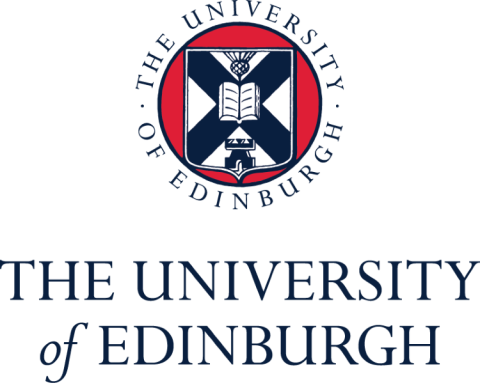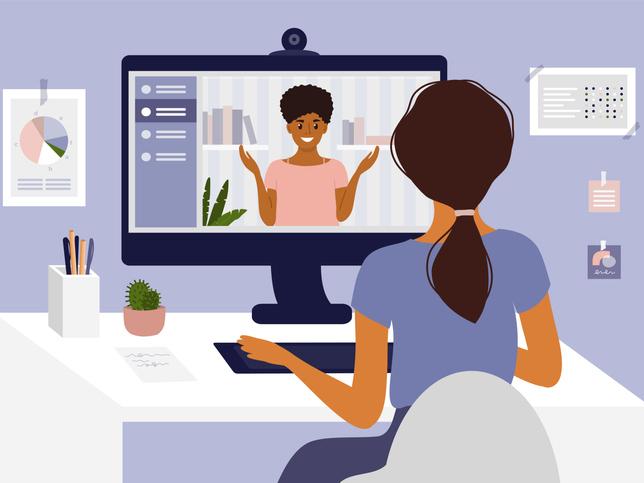
How Moocs helped a centuries-old institution change its ways
Moocs required us to rethink how to create open and free courses that would engage large numbers of learners. Over the years, we’ve adapted our services in response to lessons we’ve learned from our experiments, write Nikki Stuart and Lauren Johnston-Smith
In 2013, the University of Edinburgh trialled a new type of course called a massive open online course (Mooc), through a partnership with the global education provider Coursera. Looking back now, we can see that these new experiments in online learning would ultimately help a centuries-old university change its ways.
Back then, the university had already been delivering online master’s in-house for many years, but Moocs required us to rethink how to create open and free courses that would engage large numbers of learners. Our partnership with Coursera was quickly followed by partnerships with edX and FutureLearn. Trying out different approaches on three different platforms allowed us to establish a clear picture of what a good quality Edinburgh Mooc should entail.
In 2017, we embarked on what seemed like the next logical step in our journey: creating a microcredential, a collection of Moocs that, when taken together, provide the learner with deeper learning outcomes and in some cases university credit. These microcredentials followed the Mooc costing models and were typically substantially cheaper than equivalent credit-based courses within a full degree programme. We decided to work with edX to produce a microcredential it termed a “MicroMasters”. Several years on from the start of these experiments, we are now able to reflect on what we’ve learned.
Changing processes and behaviour takes time and effort
The University of Edinburgh has been at the forefront of distance and online education since 2005, yet it is still a predominantly campus-based university. Policy and processes are generally designed for full degree campus programmes, so it took time and effort to get the internal support we needed to allow us to deliver our microcredential trial. If you anticipate similar challenges, then be sure to allow plenty of time to change processes. Securing senior leadership support will also help break down barriers and enable you to have a voice at various university committees.
Creating a microcredential on edX wasn’t as simple as bundling four related Moocs together. We were the first UK university to deliver a MicroMasters with edX and consequently had to work to shape what a MicroMasters looked like both in the UK and at the University of Edinburgh.
To deliver at pace we needed to design our courses in parallel to agreeing the process and governance frameworks in which they would operate. As we were learning and improving along the way, we had to revisit some early decisions where we hadn’t got it quite right the first time and this resulted in some change fatigue from the people involved. It was hard at the time, but the process convinced some doubters of the benefits of online learning which later led them to create further online programmes. Recognising and celebrating your successes, no matter how small, will help mitigate change fatigue and keep your teams focused on the long-term benefits.
- Resource collection: Lifelong learning that will last
- How to design and build microcredentials in four steps
- What makes an effective microcredential programme?
Finding out what prospective learners want is vital
Shortly after we launched our credited MicroMasters with edX we had an opportunity to conduct a further microcredential trial, this time a non-credited professional certificate. We decided to repurpose an existing popular Mooc and add an additional new course to expand the learning outcomes. Interestingly, the demand for this non-credited microcredential far surpassed the enrolments we had seen on our credited microcredential. This led us, in 2021, to undertake market research into the factors that are important to learners. Universities have a wealth of data and insights at their fingertips. Use this data to your advantage, and supplement it with external agency work for the areas where you need wider or more globally focused market insights. Our research with 1,000 individuals and 269 organisations confirmed what we had seen in our Mooc and microcredential trials: prospective learners want a clear understanding of what they will achieve from the course, and a certificate that would be recognised by employers, such as a digital badge or CPD points. This led us to create the case for a digital badge credentialing service at the university.
Building team expertise may be more beneficial than the actual outputs
Throughout all our trials and experiments with online learning and Moocs, the best asset we have created is the knowledge and experience of our production teams. Over the years, our instructional designers and media, project and marketing managers have adapted our services in response to lessons we’ve learnt from our experiments. We are now able to apply our expert knowledge to both directly produce and support high-quality courses ourselves, and to share that knowledge with colleagues at the university and beyond. We have even made two of our own courses: How to Create an Online Course and How to Create Video for Online Courses, which are both available on FutureLearn.
With any project, it’s not what it produces but how the people involved use it to enable positive change. Design your projects to ensure you invest time and resources in training, guidance and support. Involve all the relevant parties from across your institution; consulting with them from the start will save you time down the line, and help your project to be fit for purpose. Identify the people who can influence change and encourage them to get involved. Use feedback loops to listen to how your project is landing on the ground. Testing on a small scale first and rolling out in phases enables you to experiment. Once you have embedded the change, consider how you can communicate that expertise to help others grow.
By being willing to experiment, to develop our people and processes and to share our expertise, we were in a strong position to support the university’s pivot to hybrid teaching during the pandemic and to support teaching colleagues to experiment further with online learning.
Like lifelong learners, we’re still learning
Throughout this process, we have learned that no matter how small the change may seem, it is important to take time to ensure people understand the impact the change will have and their role in achieving success. Actively showing you are listening to any concerns by adapting where possible and being transparent in instances where there is no flexibility should increase the likelihood that people feel like part of the change rather than as though the change is being imposed on them.
We’re now expanding our horizons further by creating a new short course platform to improve the experiences for the many learners on courses we offer that aren’t Moocs. Both the UK and Scottish governments have recognised the importance of lifelong learning in recent legislation, and we are keen to provide a better experience for our short course learners. The University of Edinburgh has been delivering extra-mural and continuing education since the 1960s and we will be using our more recent experiences with Moocs and online teaching to expand and improve that offering.
Can a centuries-old university change its ways? Definitely! It might be slow and take a circuitous route but persevere – you’ll learn plenty along the way.
Nikki Stuart is a digital programme manager and Lauren Johnston-Smith is an online learning marketing projects manager at the University of Edinburgh.
If you would like advice and insight from academics and university staff delivered direct to your inbox each week, sign up for the Campus newsletter.




